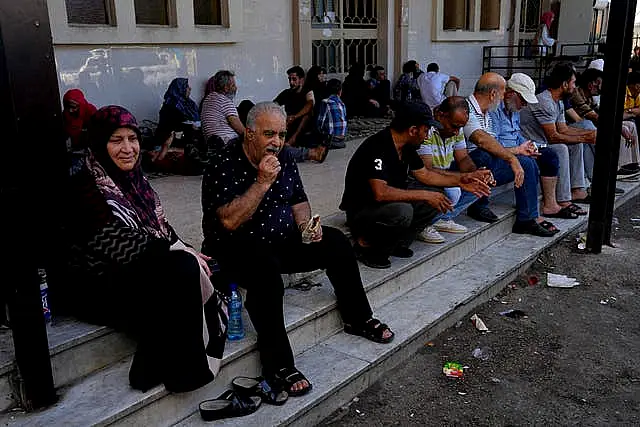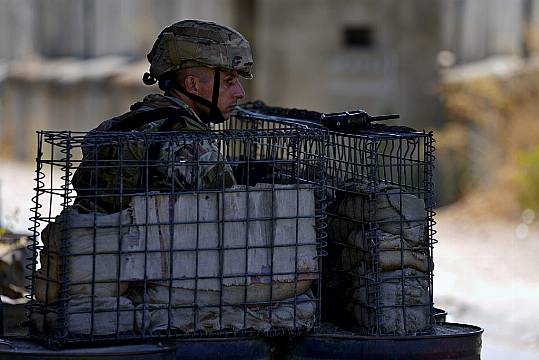Islamist factions in Lebanon’s largest Palestinian refugee camp have said they will abide by a ceasefire after three days of clashes killed at least five people and left hundreds of families displaced.
Fighting between Palestinian President Mahmoud Abbas’ Fatah movement and Islamist groups has rocked southern Lebanon’s Ein el-Hilweh refugee camp since Friday.
Fatah and other factions in the camp had intended to crack down on suspects accused of killing one of their military generals in late July.

Besides the five killed, 52 others were wounded, Dr Riad Abu Al-Einen, who heads the Al-Hamshari Hospital in Sidon that has received the casualties, told the Associated Press.
The UN agency for Palestinian refugees, UNRWA, however stated that four people were killed and 60 others wounded.
The Lebanese military said in a statement that five soldiers were wounded after three shells landed in army checkpoints surrounding the camp. One of the soldiers is in critical condition.
“The army command repeats its warning to the concerned parties in the camp about the consequences of exposing military members and positions to danger, and affirms that the army will take appropriate measures in response,” the statement said.

Ein el-Hilweh, home to some 55,000 people according to the United Nations, is notorious for its lawlessness and violence is not uncommon in the camp.
It was established in 1948 to house Palestinians who were displaced when Israel was established.
Lebanese officials, security agencies and the UN have urged the warring factions to agree on a ceasefire.
The interim chief of Lebanon’s General Security agency Elias al-Baysari said that he will attend a meeting between Palestinian factions and urge the factions to reach a resolution.
The clashing factions in the camp said in a statement published on Sunday by Lebanon’s state-run National News Agency that they planned to abide by a ceasefire.
UNRWA said hundreds of families displaced from the camp have taken shelter in nearby mosques, schools and the Sidon municipality building.

The UN agency and local organizations are setting up additional shelters after Lebanon’s prime minister and interior minister shut down an initiative by the municipality, the Lebanese Red Cross, and local community groups to set up a few dozen tents for families.
Palestinian Red Crescent paramedics set up stations at the camp’s entrance to treat the wounded and provided food packages to displaced families.
Among the wounded was Sabine Al-Ahmad, 16, who fled the camp with her family. She was being treated for shrapnel wounds. “We were running away and a shell exploded over us,” she told the AP.
Dorothee Klaus, director of the UNRWA in Lebanon, said armed groups are still occupying the agency’s schools in the camp.
“UNRWA calls on all parties and those with influence over them to stop the violence,” Ms Klaus said in a statement.
Several days of street battles in the Ein el-Hilweh camp between Fatah and members of the extremist Jund al-Sham group erupted earlier this summer that left 13 people dead and dozens wounded, and ended after an uneasy truce was put in place on August 3.
Those street battles forced hundreds to flee their homes.
However, clashes were widely expected to resume as the Islamist groups never handed over those accused of killing the Fatah general to the Lebanese judiciary, as demanded by a committee of Palestinian factions last month.
Lebanon is home to tens of thousands of Palestinian refugees and their descendants. Many live in the 12 refugee camps that are scattered around the small Mediterranean country.







